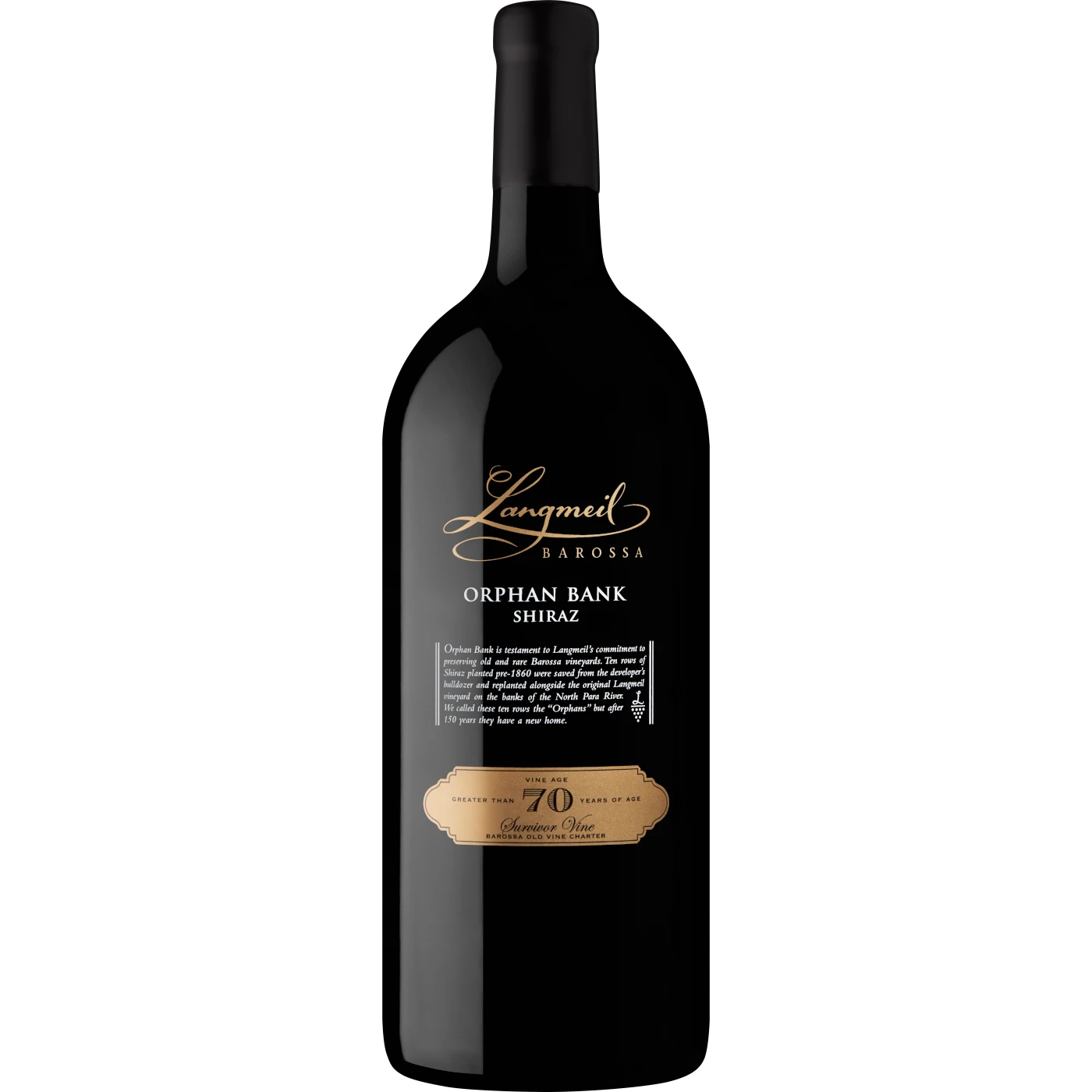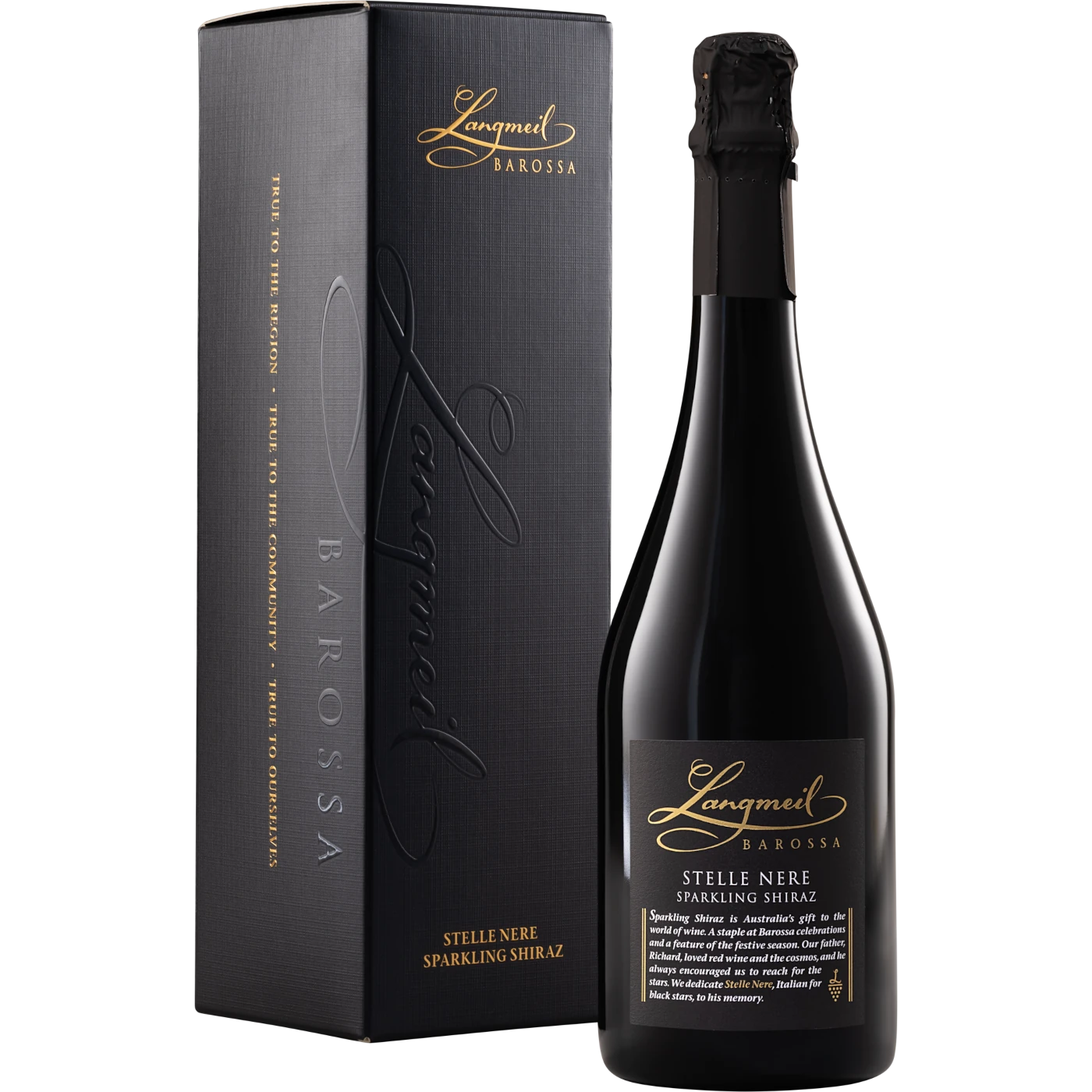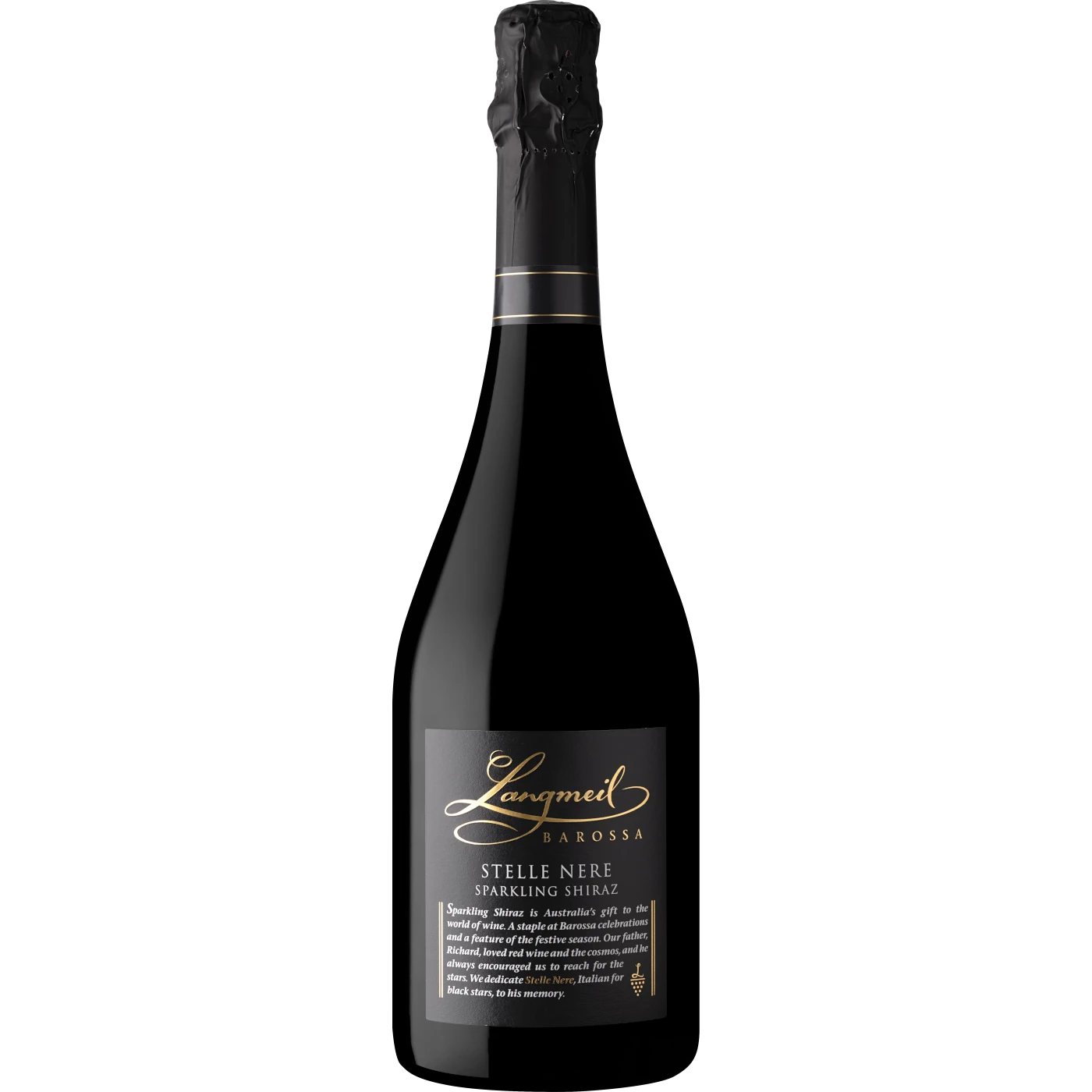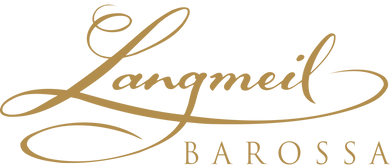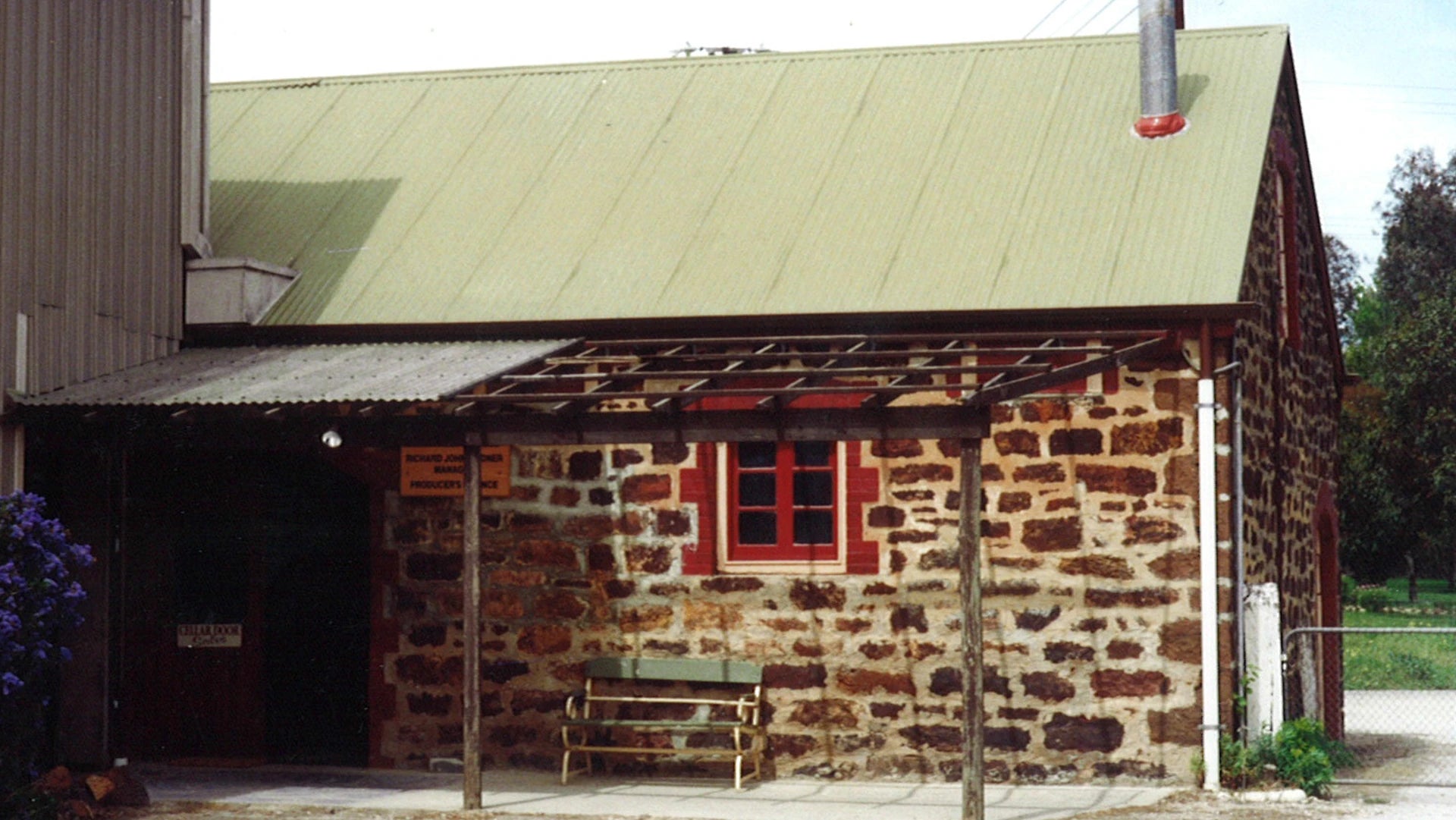Langmeil’s Legacy
The history of Langmeil is deeply entwined in stories about a brave pioneer, a timeless vineyard, industry downfall, three white knights and a present-day family’s enduring legacy. Follow our timeline to discover some of the most notable moments and milestones from Langmeil’s contributions to Australia’s remarkable wine history:
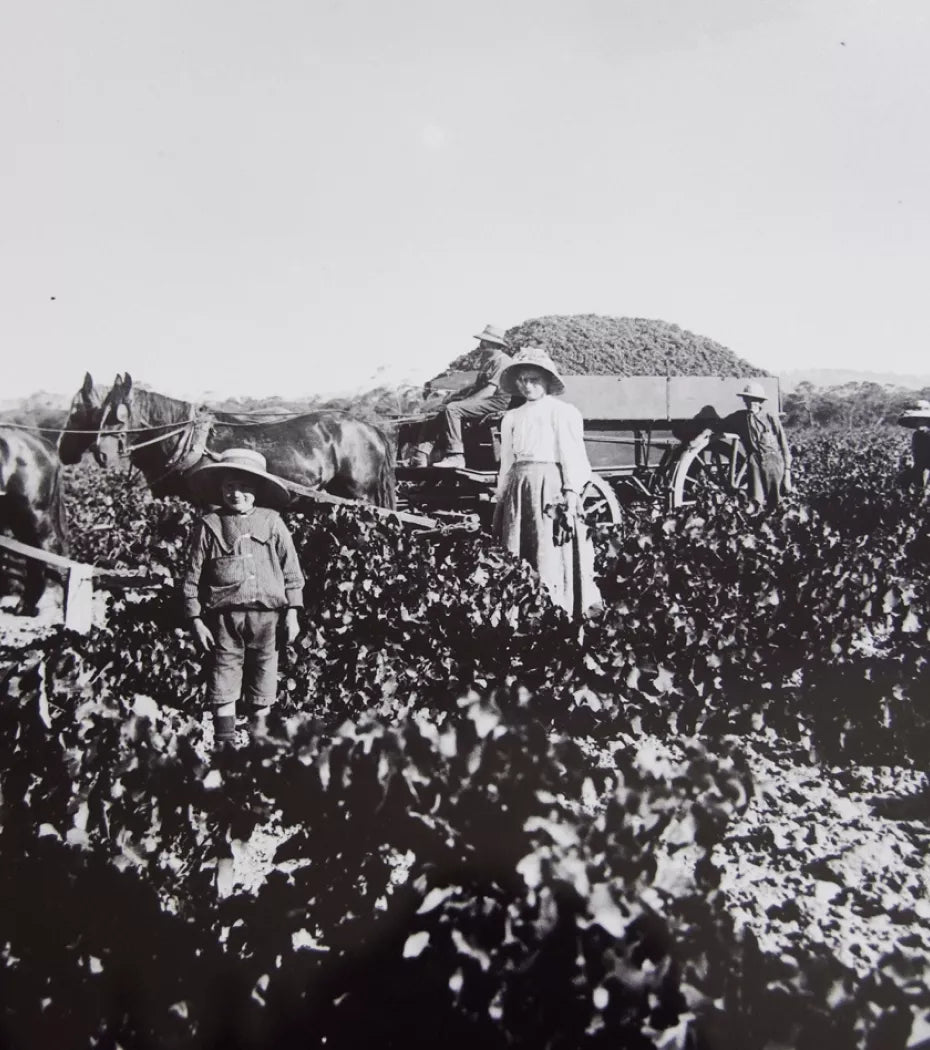
1842
Christian Auricht's Vision
Having migrated from Prussia in 1838 seeking religious Freedom, twelve families established the traditional German ‘Hufendorf’ style village of Langmeil along the North Para River. On our present site at the northern end of Langmeil Road, Christian Auricht settled Lot 36 with his wife and four children. A blacksmith by trade, he established a smithy and began tending a mixed farm. In the years that followed, a bakery, cobbler's shop and butcher's shop were built, including a well, which became the trading centre of the village.
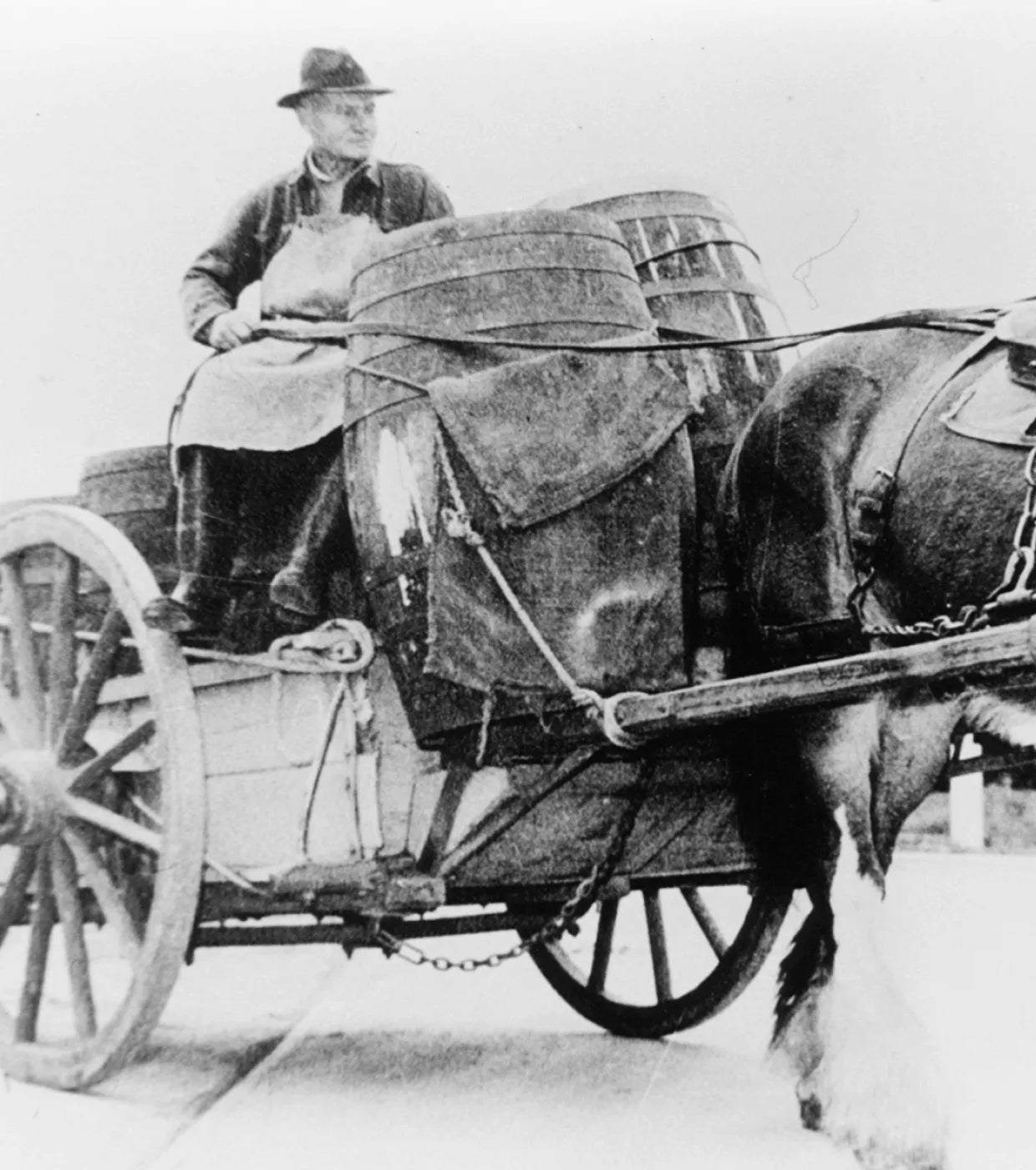
1843
Christian Auricht Founder of Langmeil
Christian plants a Shiraz vineyard. The Auricht family history is recorded in a book entitled 'From Persecution to Freedom' from which we took inspiration for the name of the vineyard that survives to this day. Now believed to be the oldest surviving Shiraz vineyard in the world, these Ancestor vines provide the exquisite fruit for our flagship, The Freedom 1843 Shiraz.
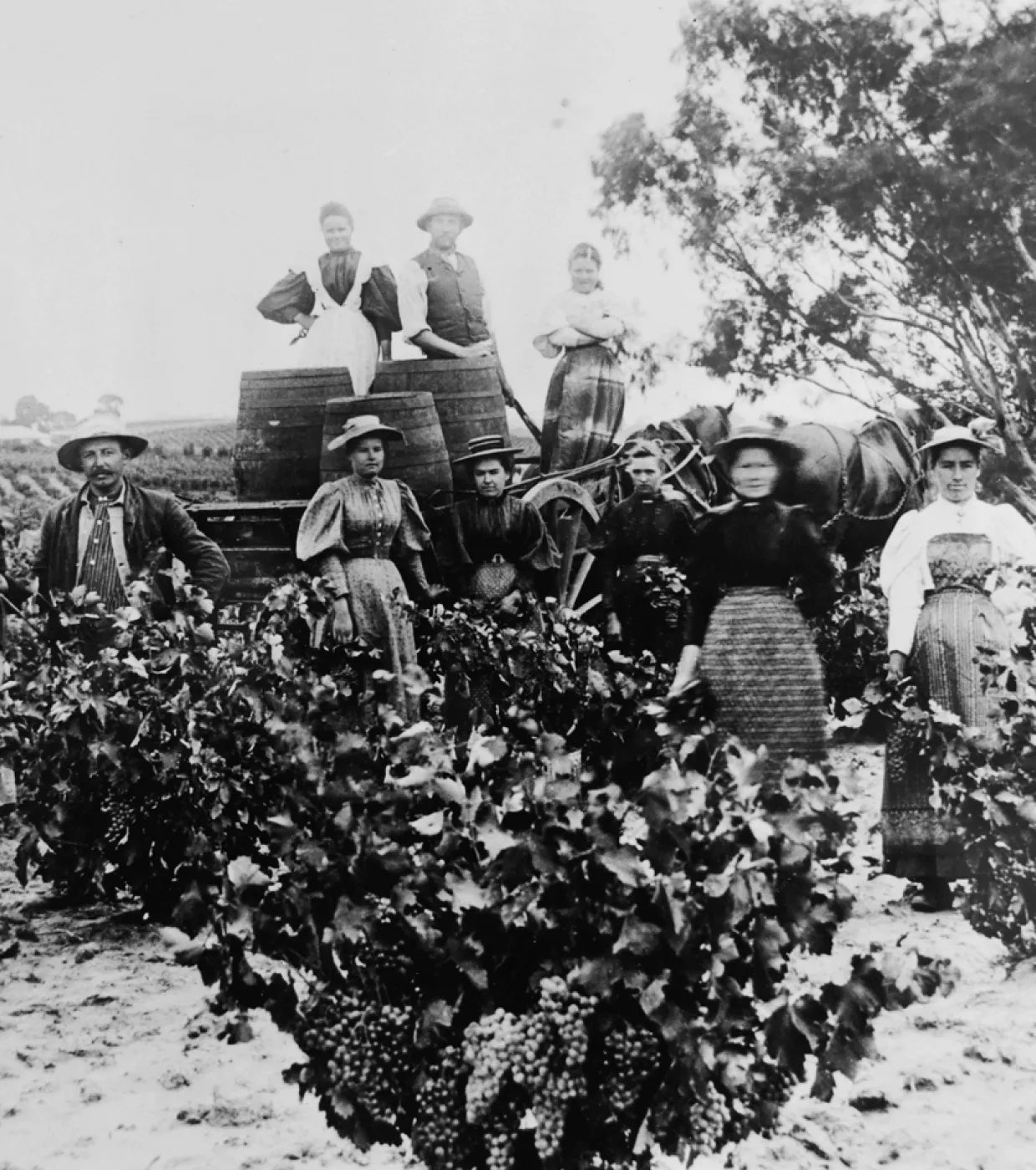
1916
The Nomenclature Act and Langmeil’s Renaming
Prior to World War I, many South Australian places had German names. Due to the ongoing war against Germany and subsequent anti-German sentiment, many place names with German origins were changed.
The village of Langmeil was renamed Bilyara before ultimately losing its identity as it was absorbed into the present-day township of Tanunda.
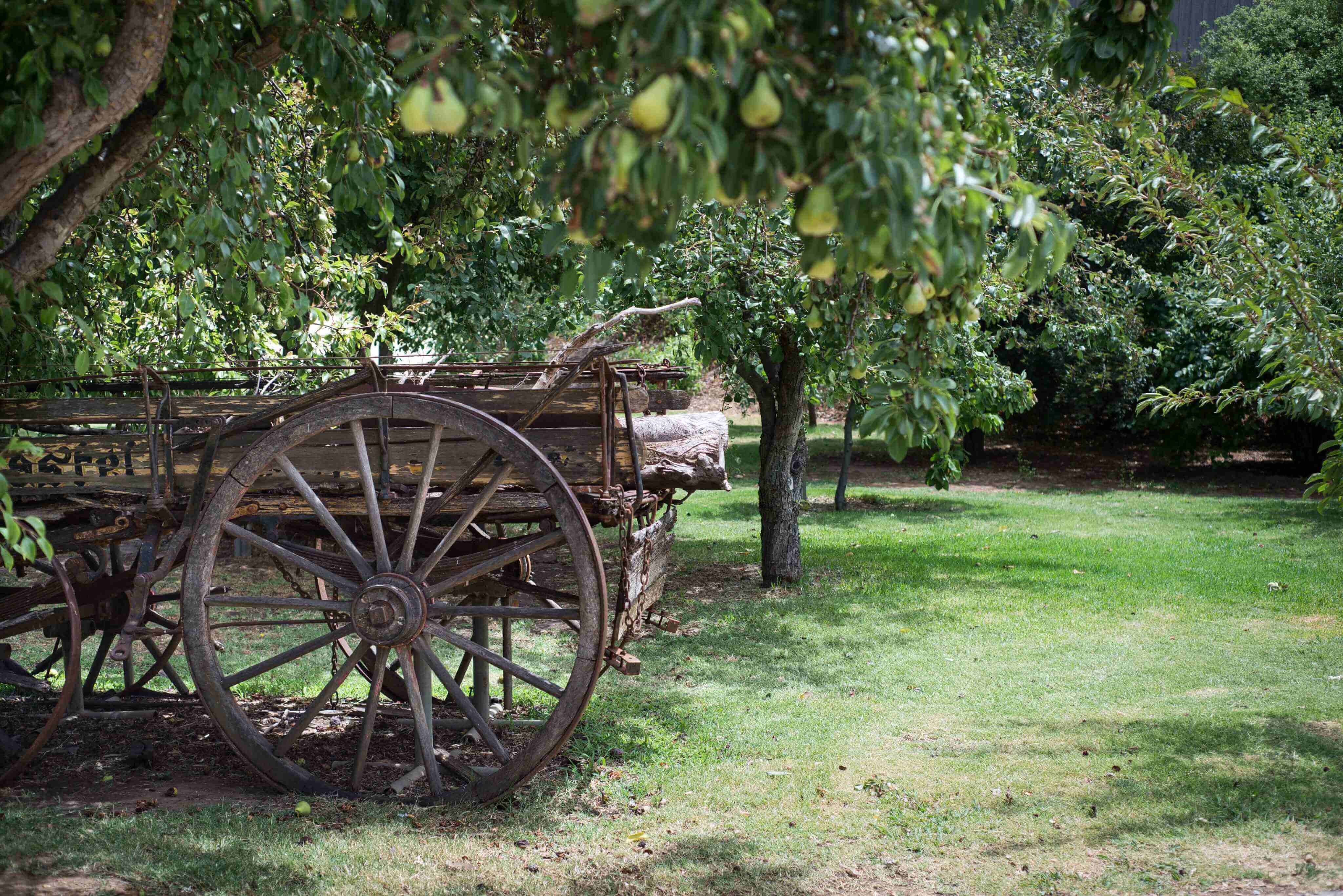
1932
Theodor Hanisch and Paradale Winery
Theodor Hanisch, grandson of Christian Auricht, established the first winery on the property, operating under the name Paradale. Theodor’s son, Arthur, later managed the operation. Theodor died in 1968, and Arthur passed just a year later in 1969.
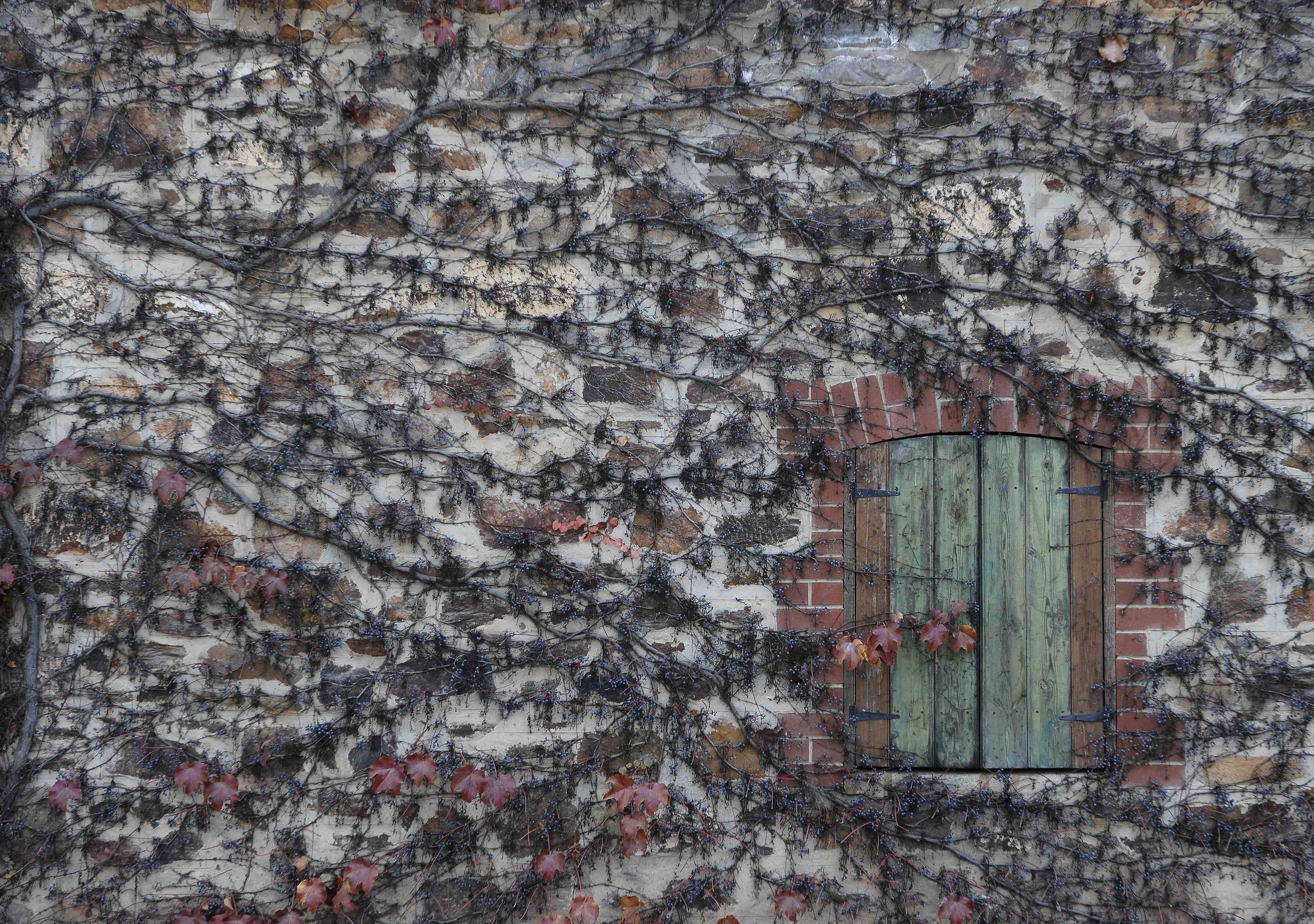
1972
The Decline and Closure of Paradale Winery
After Arthur Hanisch's death in 1969, the family sold the property.
In 1972 Bernkastel Wines purchased the winery and property, operating under their own label.
A victim of the Australian wine industries tough times of the 1980’s, Bernkastel Wines went into liquidation in 1988. Bought at a liquidation sale, the new owners did not operate the winery but did use the cellar door to sell bin end stocks.
The doors closed in August 1993 and the property and vineyards lay idle until 1996.
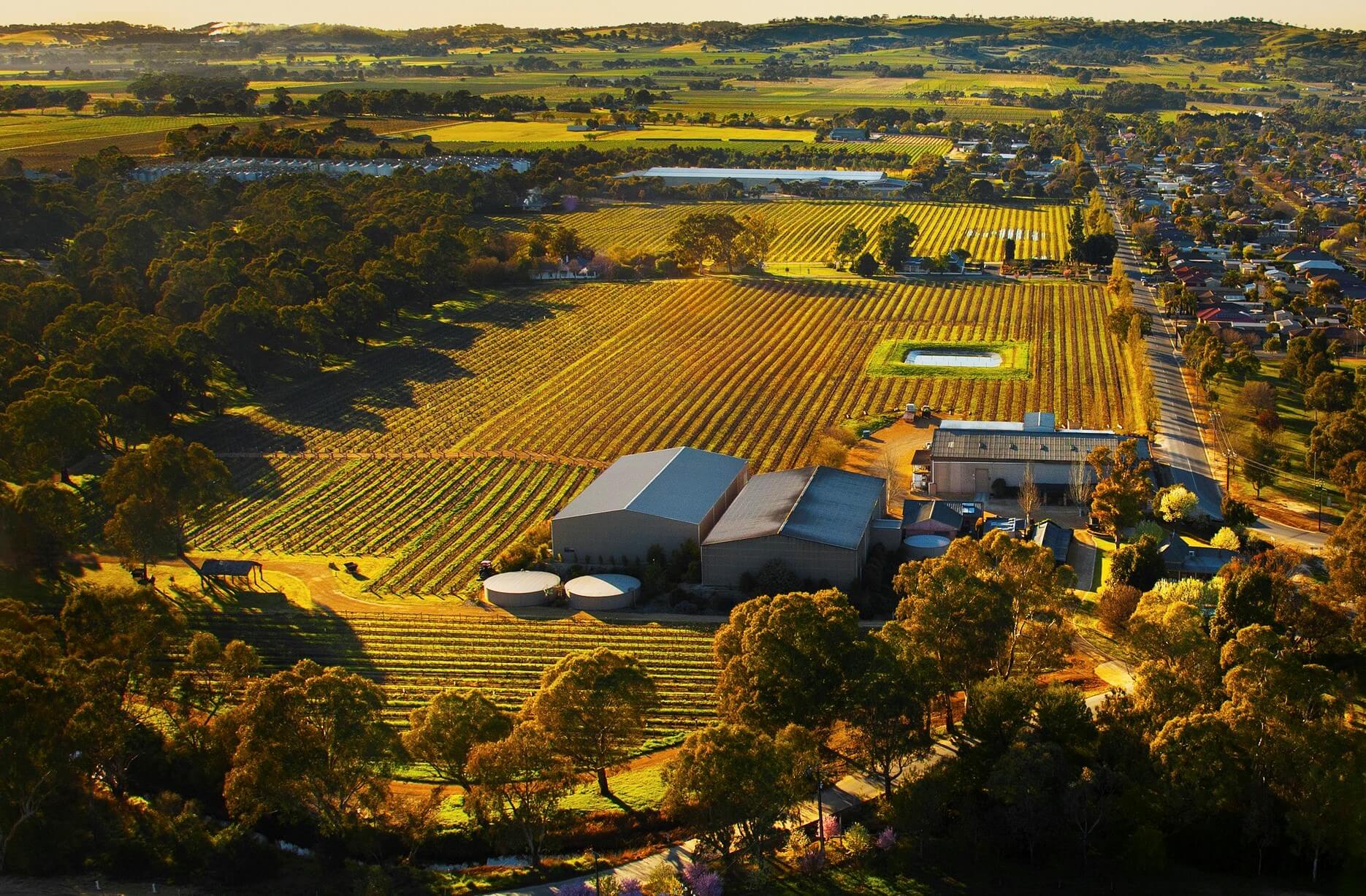
1996
The Revival of Langmeil Winery
Three local friends / family, collaborate to purchase the derelict property.
Richard Lindner, Carl Lindner and Chris Bitter, whose families have lived in the Barossa for generations, restored the old buildings, and landscaped the grounds. The trio refurbished the old winery and named it Langmeil after the original 1842 village.
In the clean-up prior to restoration, the small patch of gnarly old shiraz vines from Auricht’s 1843 planting was discovered. With much tender loving care, the vineyard was successfully revived and produced the first harvest of the Freedom Shiraz in 1997.
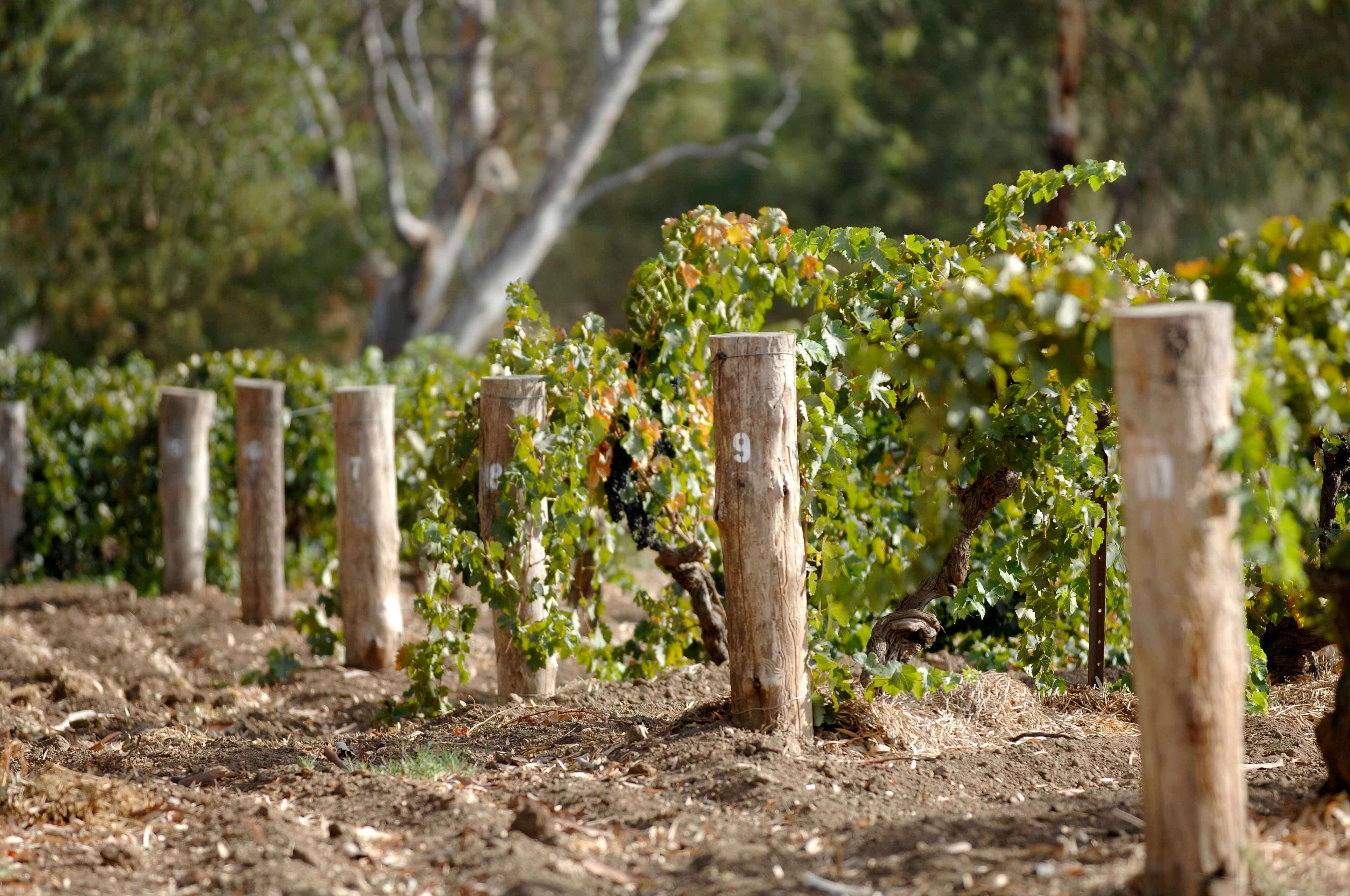
1998
The Acquisition of Jackamans Vineyard
Langmeil grower Arthur Jackaman, retires selling his Lyndoch property to the winery. Nestled in the rich soils of the southern
Barossa and named in honour of its previous owner, our ‘Jackamans’ vineyard is home to prized old vine Cabernet, Grenache and Shiraz.

1999
The First Release of The Freedom 1843 Shiraz
The first release of The Freedom 1843 shiraz – 1997 vintage.
This marks the first year a single vineyard wine dedicated to what is believed to be the oldest surviving shiraz vineyard in the world was released.

2011
A Family Legacy and Final Restoration
Richard and Shirley Lindner purchase the winery outright with their sons, Paul (Chief Winemaker) and James (Sales and Marketing), ensuring Langmeil remains family-owned for generations to come.
Restoration of the trading village and grounds enters its final phase, converting the old cobbler’s store and cellar into a specialised underground tasting room, the barn into a long table entertaining room and the original settles residence into a stylish, comfortable guest retreat.
By now our winemaking is internationally recognised and regarded as one of the Barossa’s premium wine producers, attracting visitors from all corners of the globe to visit cellar door and the restored village grounds.
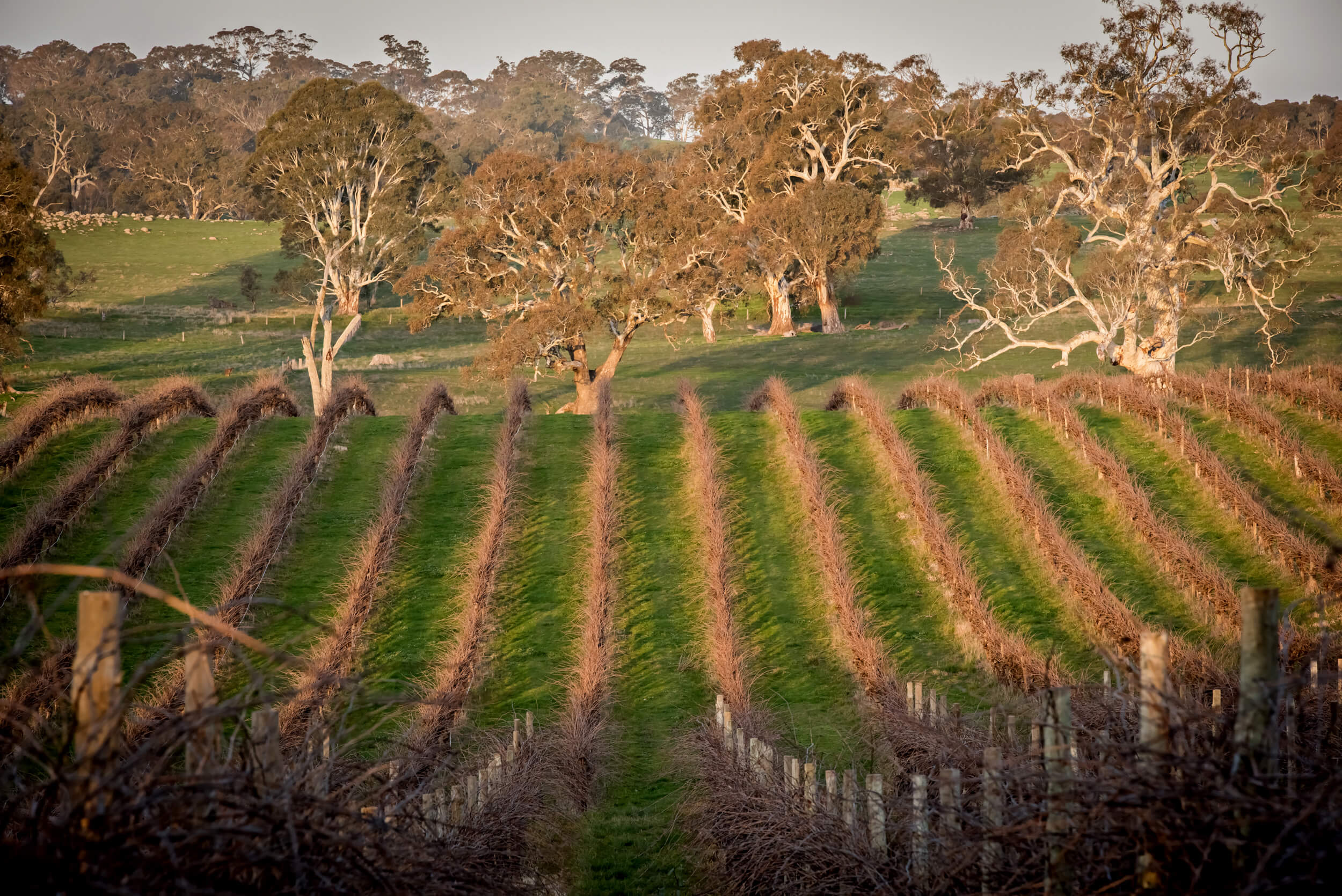
2012
Langmeil's Eden Valley Vineyard
We become custodian of an historic Eden Valley vineyard. In addition to our old vine Wattle Brae Riesling and High Road chardonnay, this property is home to the Pure Eden Shiraz vineyard believed to be planted by Charles Angas in the 1890’s.
This vineyard represents our commitment to making wines that express and embrace the unique characteristics of the Barossa’s high country.
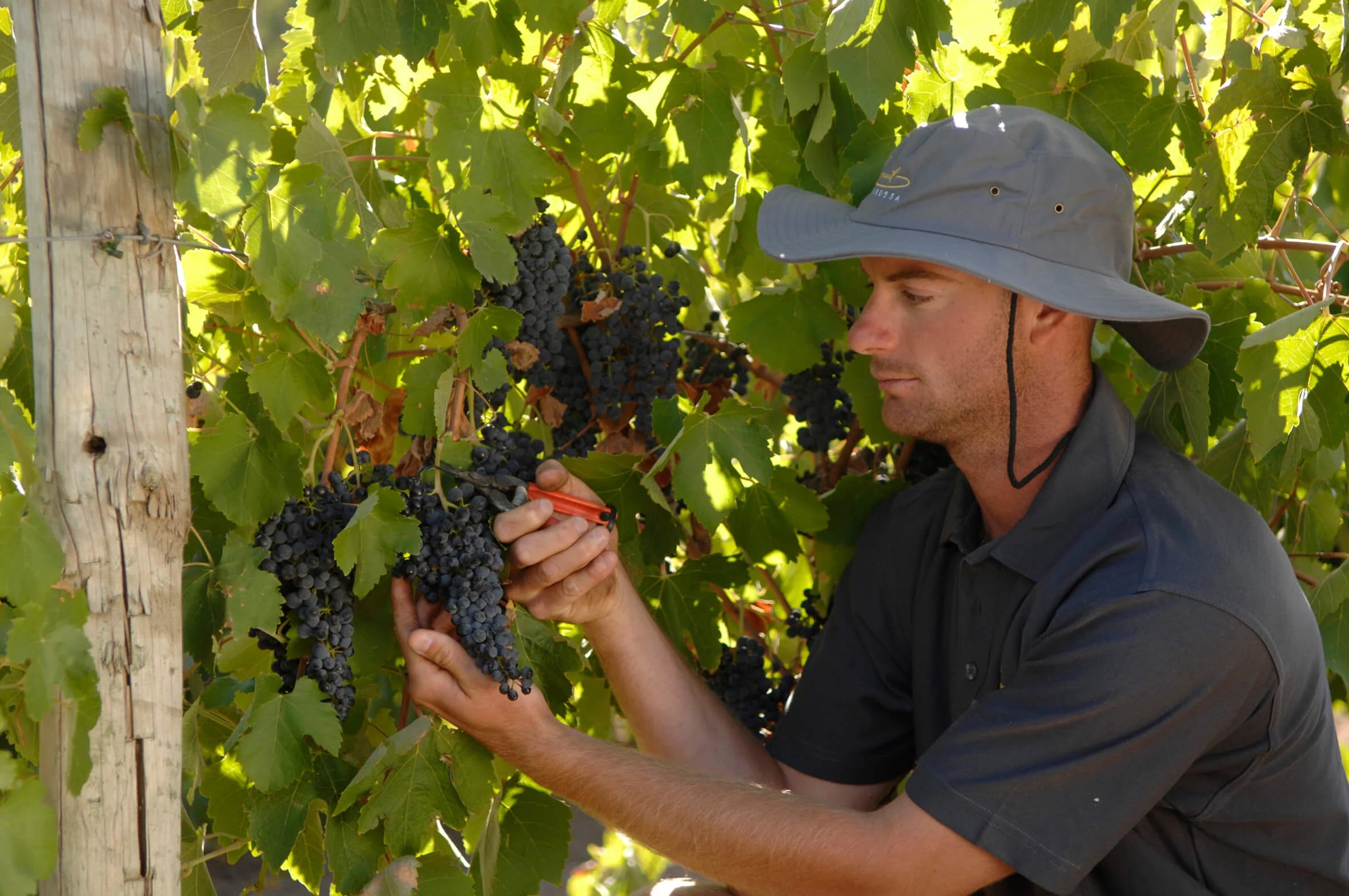
2014
The Freedom 1843 Shirazin Langton’s VI
The Freedom 1843 Shiraz joins the prestigious Langton’s Classification VI honour roll in the ‘Excellent’ category and lauded by James Halliday as a wine which “…you should kneel in the presence of…”.
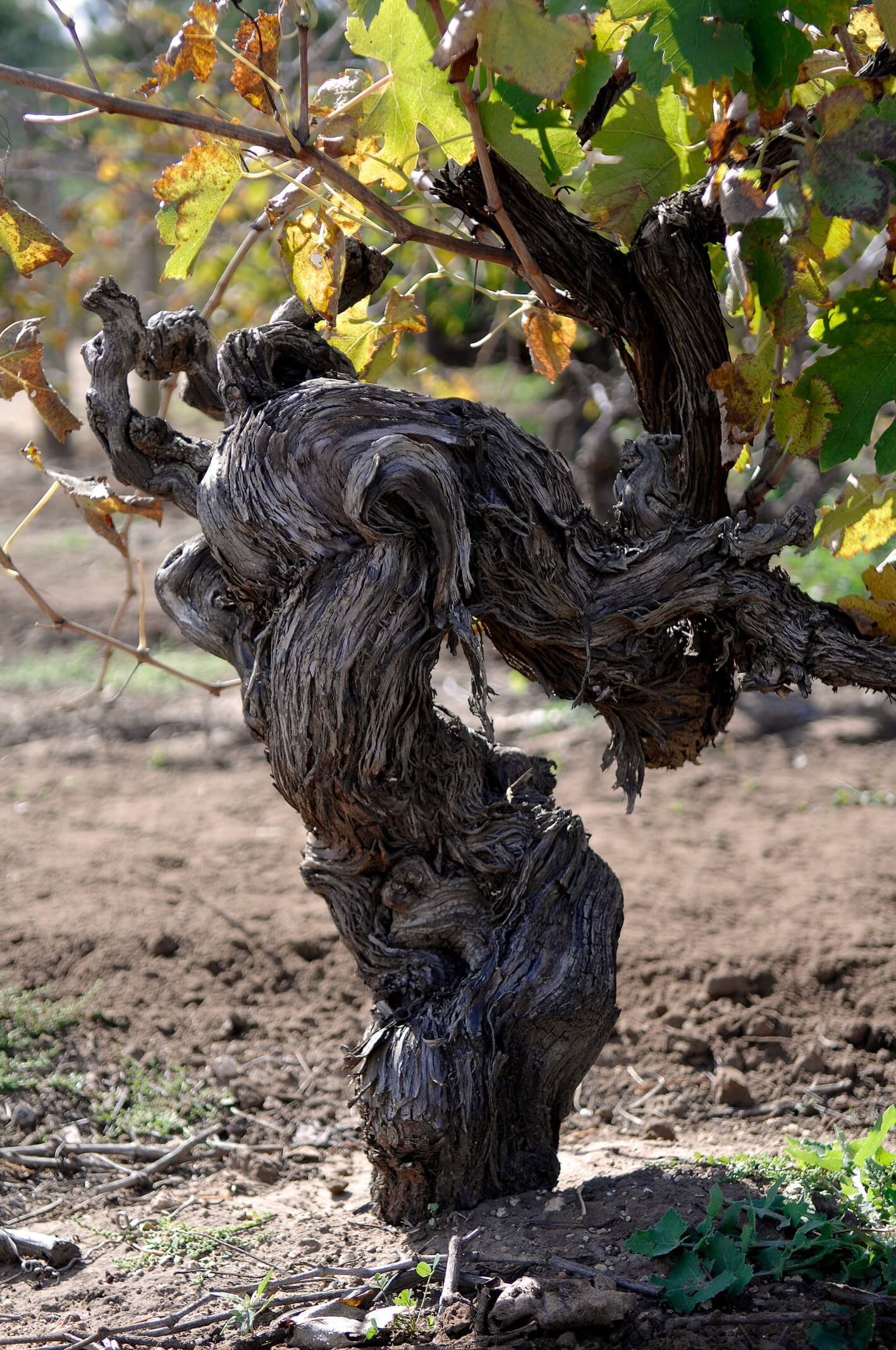
2015
First Vintage Release of Pure Eden Shiraz
First release of the Pure Eden Shiraz. Hailing from our 1890’s Eden Valley vineyard, the 2013 vintage of Pure Eden Shiraz sees a Barossa high country sibling to the Freedom 1843 Shiraz join our Old Vine Garden Collection.
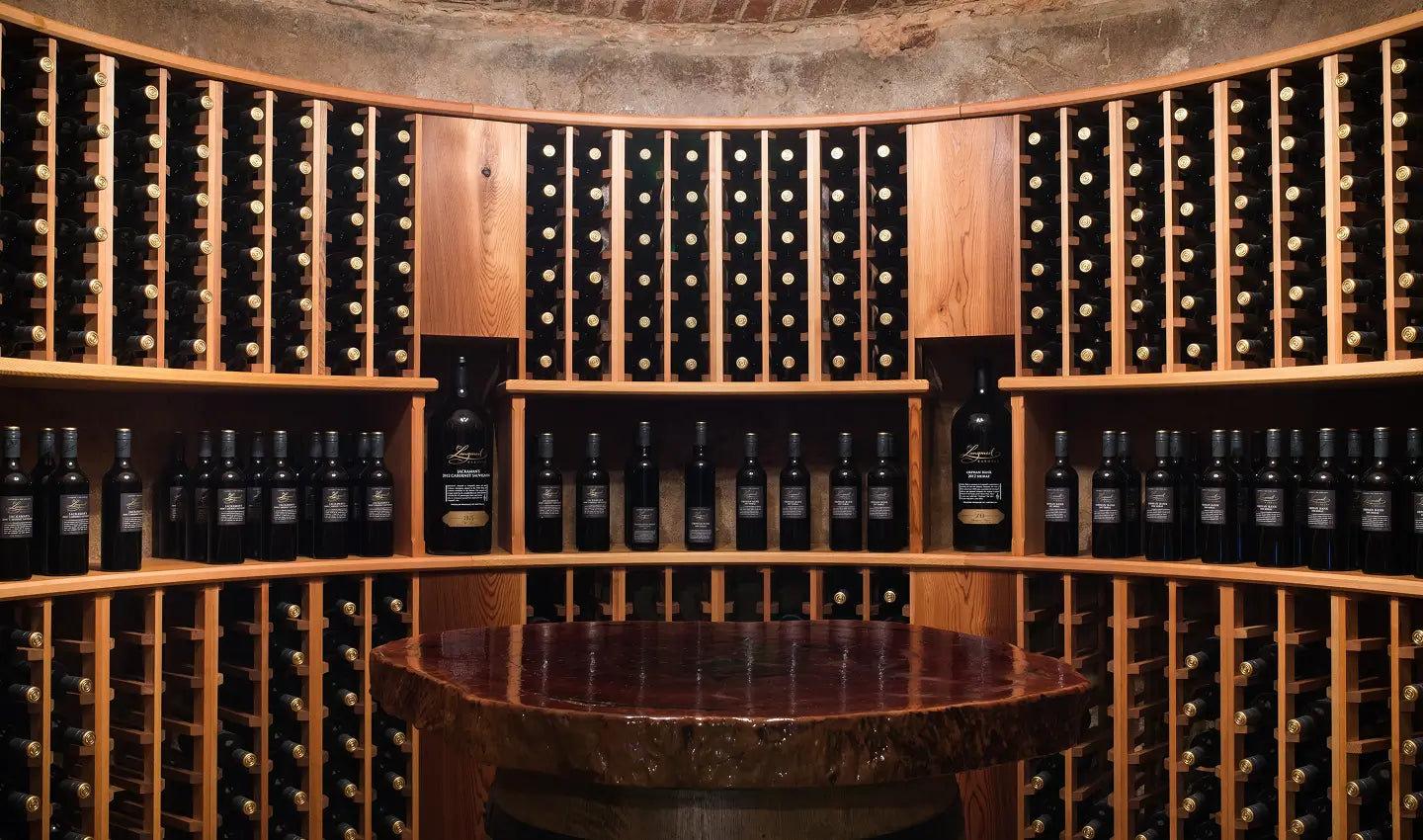
2019
Passing of Richard Lindner
The winery experiences a great loss with the sad passing of our patriarch and owner Richard Lindner. Wife Shirley continues at the helm along with sons James and Paul .

2022
Launch of the 2017 Lineage Shiraz
Langmeil is the privileged custodian of two of Australia's most historic shiraz plantings in the form of the 1843 Freedom Vineyard of the Barossa Valley and the 1890’s planted Eden Valley Pure Eden Vineyard. Producing wines of immense significance as single-vineyard expressions, Paul Lindner, co-proprietor and director of winemaking, brought together small portions of the two to create an exemplar of the region's diverse geology and disparate growing seasons.

2023
Sustainable Winegrowing
Awarded the Sustainable Winegrowing Australia (SWA) Trustmark ,an internationally recognised standard of sustainable practice in viticulture and winemaking.

1842
Christian Auricht's Vision
Having migrated from Prussia in 1838 seeking religious Freedom, twelve families established the traditional German ‘Hufendorf’ style village of Langmeil along the North Para River. On our present site at the northern end of Langmeil Road, Christian Auricht settled Lot 36 with his wife and four children. A blacksmith by trade, he established a smithy and began tending a mixed farm. In the years that followed, a bakery, cobbler's shop and butcher's shop were built, including a well, which became the trading centre of the village.

1843
Christian Auricht Founder of Langmeil
Christian plants a Shiraz vineyard. The Auricht family history is recorded in a book entitled 'From Persecution to Freedom' from which we took inspiration for the name of the vineyard that survives to this day. Now believed to be the oldest surviving Shiraz vineyard in the world, these Ancestor vines provide the exquisite fruit for our flagship, The Freedom 1843 Shiraz.

1916
The Nomenclature Act and Langmeil’s Renaming
Prior to World War I, many South Australian places had German names. Due to the ongoing war against Germany and subsequent anti-German sentiment, many place names with German origins were changed.
The village of Langmeil was renamed Bilyara before ultimately losing its identity as it was absorbed into the present-day township of Tanunda.

1932
Theodor Hanisch and Paradale Winery
Theodor Hanisch, grandson of Christian Auricht, established the first winery on the property, operating under the name Paradale. Theodor’s son, Arthur, later managed the operation. Theodor died in 1968, and Arthur passed just a year later in 1969.

1972
The Decline and Closure of Paradale Winery
After Arthur Hanisch's death in 1969, the family sold the property.
In 1972 Bernkastel Wines purchased the winery and property, operating under their own label.
A victim of the Australian wine industries tough times of the 1980’s, Bernkastel Wines went into liquidation in 1988. Bought at a liquidation sale, the new owners did not operate the winery but did use the cellar door to sell bin end stocks.
The doors closed in August 1993 and the property and vineyards lay idle until 1996.

1996
The Revival of Langmeil Winery
Three local friends / family, collaborate to purchase the derelict property.
Richard Lindner, Carl Lindner and Chris Bitter, whose families have lived in the Barossa for generations, restored the old buildings, and landscaped the grounds. The trio refurbished the old winery and named it Langmeil after the original 1842 village.
In the clean-up prior to restoration, the small patch of gnarly old shiraz vines from Auricht’s 1843 planting was discovered. With much tender loving care, the vineyard was successfully revived and produced the first harvest of the Freedom Shiraz in 1997.

1998
The Acquisition of Jackamans Vineyard
Langmeil grower Arthur Jackaman, retires selling his Lyndoch property to the winery. Nestled in the rich soils of the southern
Barossa and named in honour of its previous owner, our ‘Jackamans’ vineyard is home to prized old vine Cabernet, Grenache and Shiraz.

1999
The First Release of The Freedom 1843 Shiraz
The first release of The Freedom 1843 shiraz – 1997 vintage.
This marks the first year a single vineyard wine dedicated to what is believed to be the oldest surviving shiraz vineyard in the world was released.

2011
A Family Legacy and Final Restoration
Richard and Shirley Lindner purchase the winery outright with their sons, Paul (Chief Winemaker) and James (Sales and Marketing), ensuring Langmeil remains family-owned for generations to come.
Restoration of the trading village and grounds enters its final phase, converting the old cobbler’s store and cellar into a specialised underground tasting room, the barn into a long table entertaining room and the original settles residence into a stylish, comfortable guest retreat.
By now our winemaking is internationally recognised and regarded as one of the Barossa’s premium wine producers, attracting visitors from all corners of the globe to visit cellar door and the restored village grounds.

2012
Langmeil's Eden Valley Vineyard
We become custodian of an historic Eden Valley vineyard. In addition to our old vine Wattle Brae Riesling and High Road chardonnay, this property is home to the Pure Eden Shiraz vineyard believed to be planted by Charles Angas in the 1890’s.
This vineyard represents our commitment to making wines that express and embrace the unique characteristics of the Barossa’s high country.

2014
The Freedom 1843 Shirazin Langton’s VI
The Freedom 1843 Shiraz joins the prestigious Langton’s Classification VI honour roll in the ‘Excellent’ category and lauded by James Halliday as a wine which “…you should kneel in the presence of…”.

2015
First Vintage Release of Pure Eden Shiraz
First release of the Pure Eden Shiraz. Hailing from our 1890’s Eden Valley vineyard, the 2013 vintage of Pure Eden Shiraz sees a Barossa high country sibling to the Freedom 1843 Shiraz join our Old Vine Garden Collection.

2019
Passing of Richard Lindner
The winery experiences a great loss with the sad passing of our patriarch and owner Richard Lindner. Wife Shirley continues at the helm along with sons James and Paul .

2022
Launch of the 2017 Lineage Shiraz
Langmeil is the privileged custodian of two of Australia's most historic shiraz plantings in the form of the 1843 Freedom Vineyard of the Barossa Valley and the 1890’s planted Eden Valley Pure Eden Vineyard. Producing wines of immense significance as single-vineyard expressions, Paul Lindner, co-proprietor and director of winemaking, brought together small portions of the two to create an exemplar of the region's diverse geology and disparate growing seasons.

2023
Sustainable Winegrowing
Awarded the Sustainable Winegrowing Australia (SWA) Trustmark ,an internationally recognised standard of sustainable practice in viticulture and winemaking.
